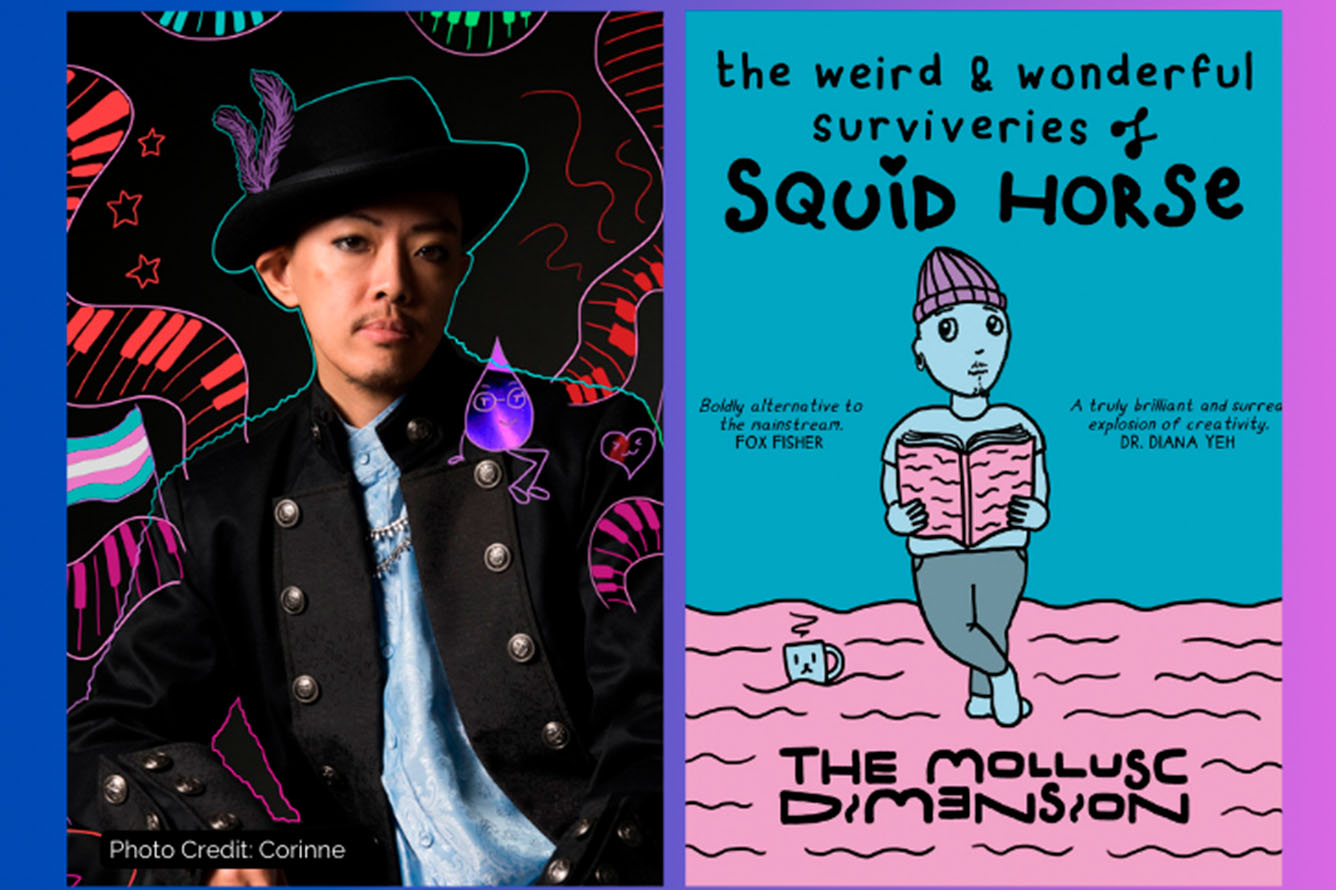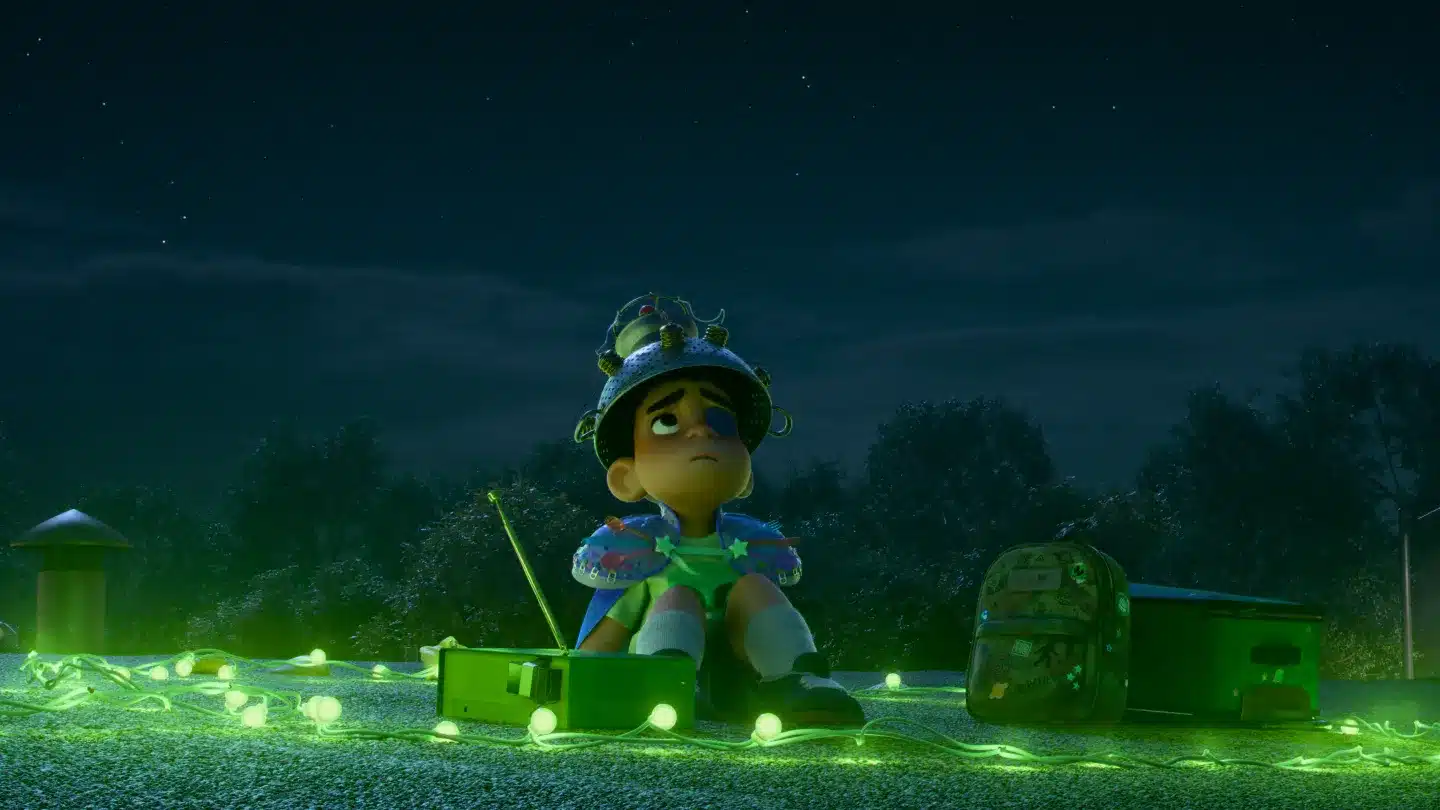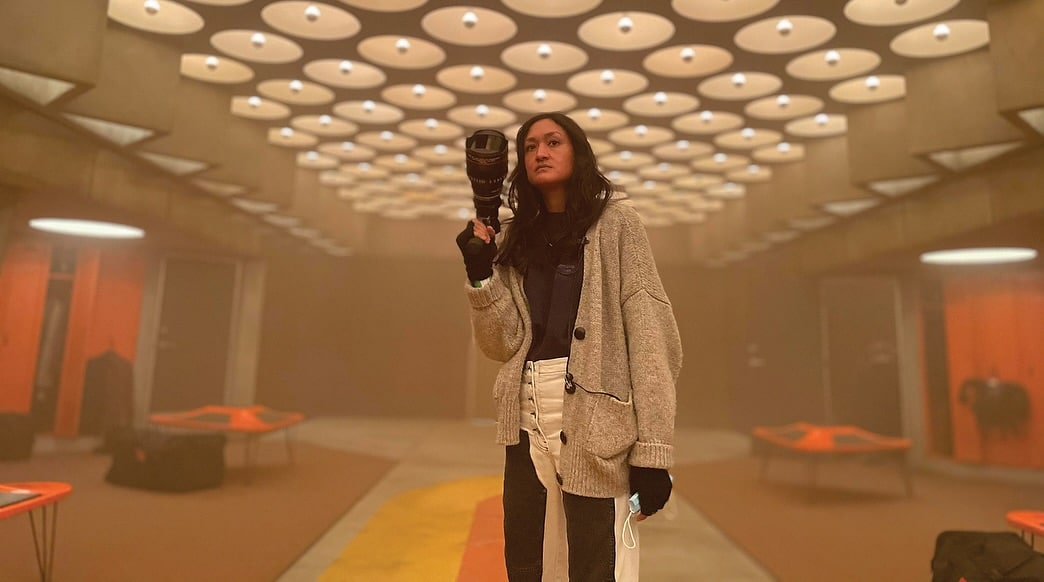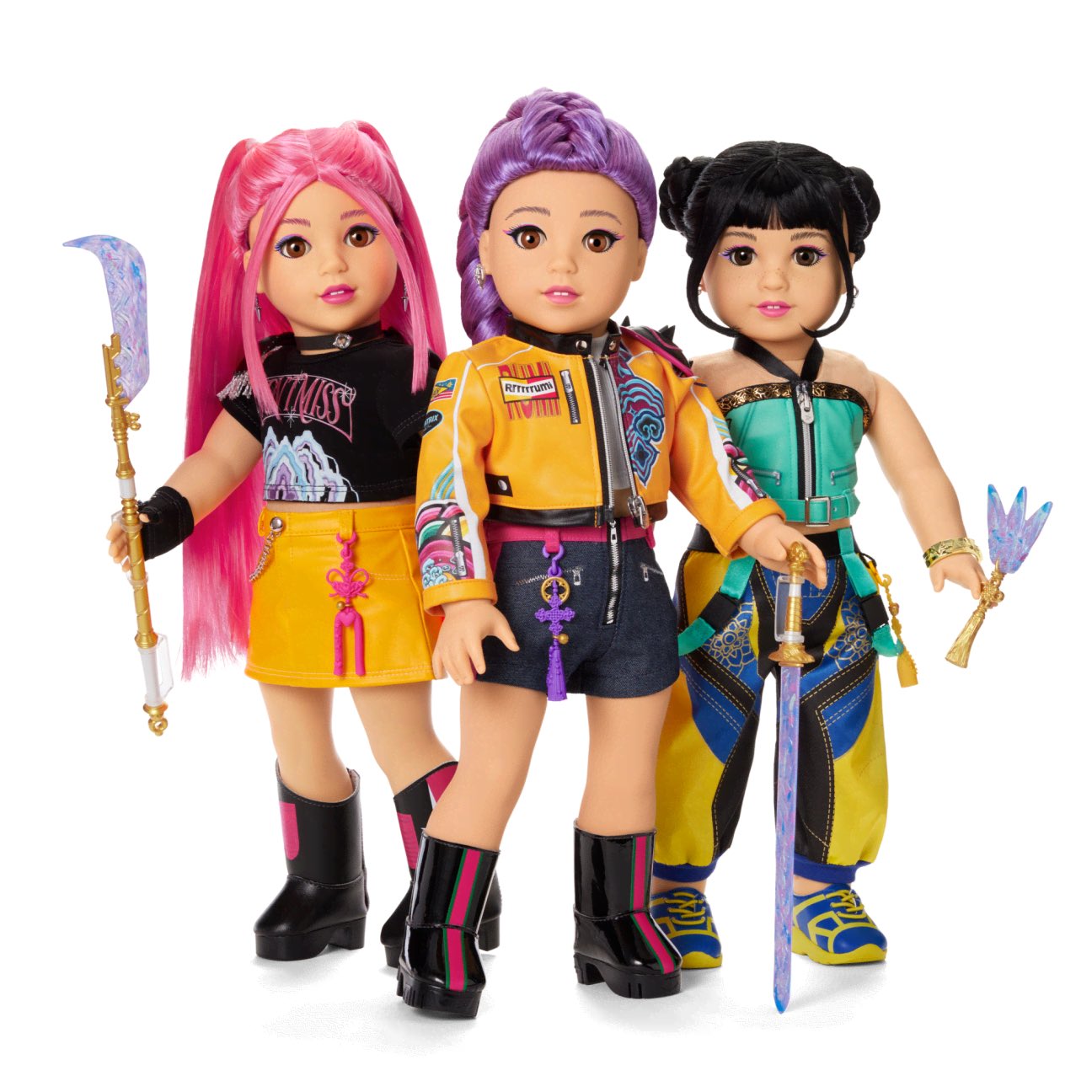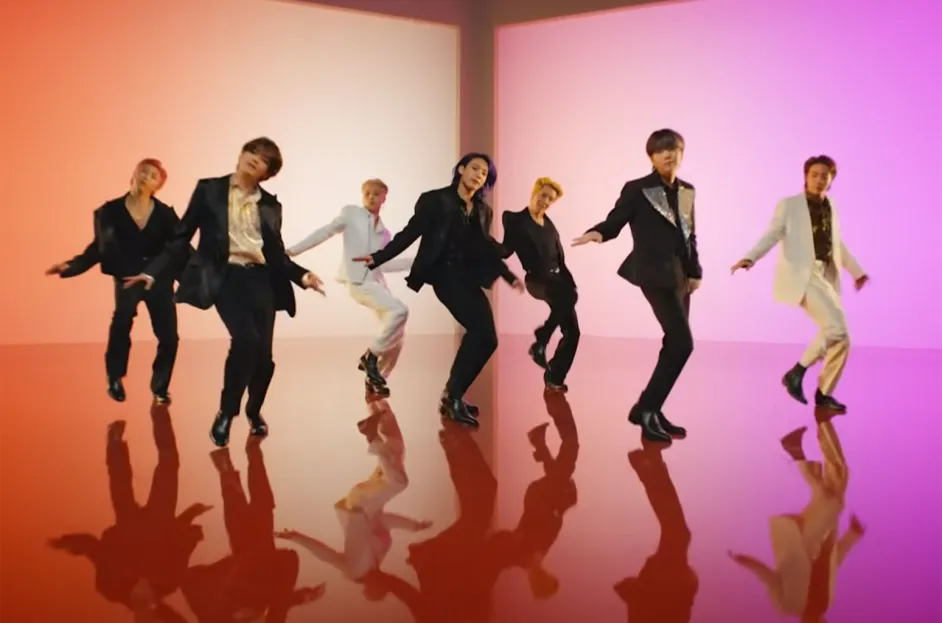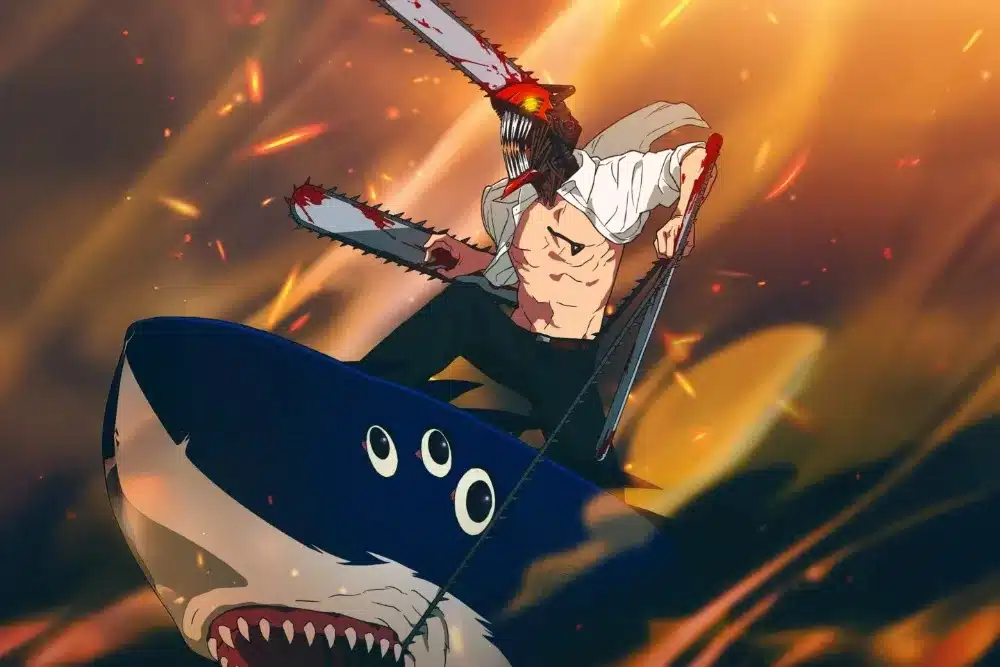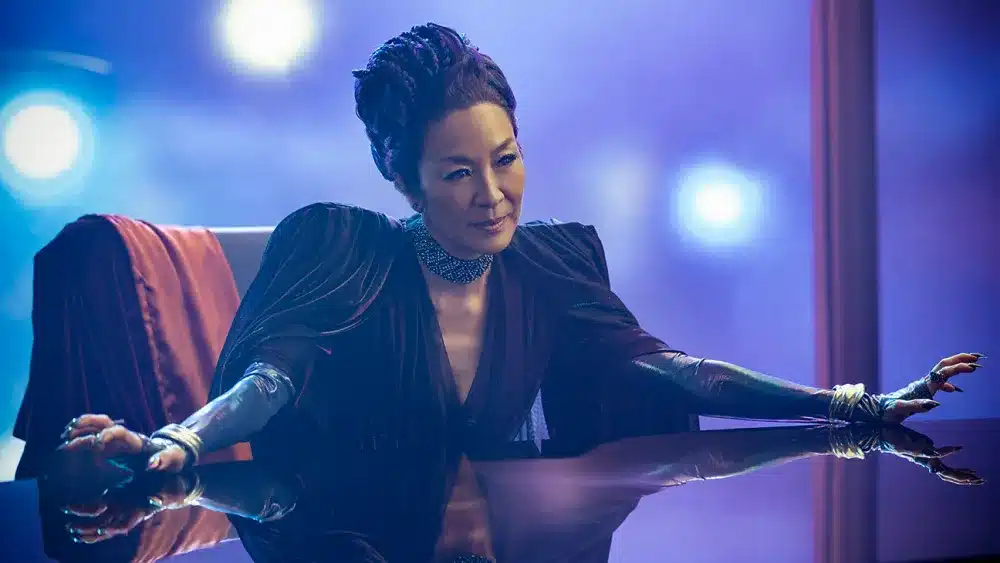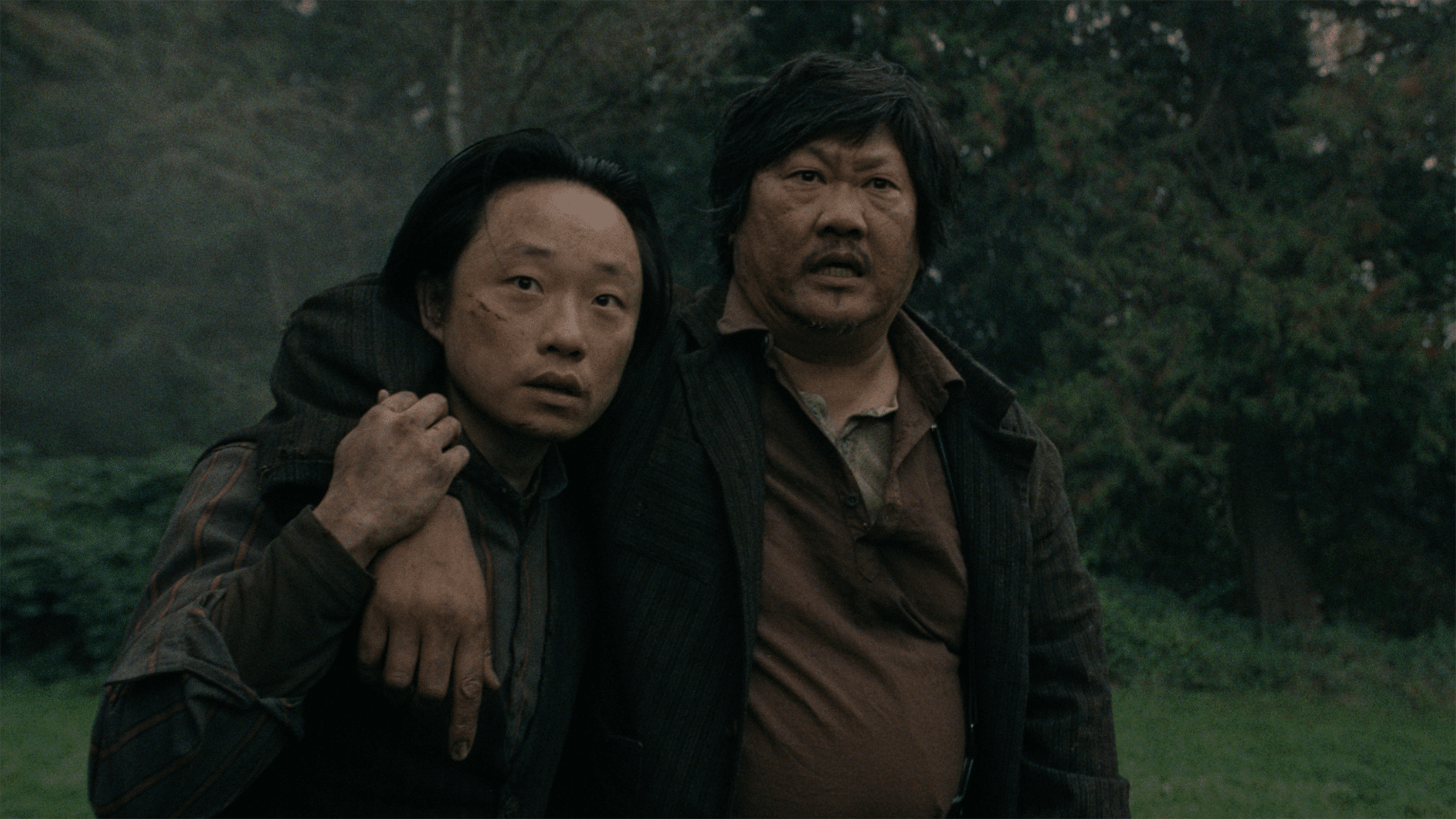The Mollusc Dimension’s vibrant graphic memoir, The Weird & Wonderful Surviveries of Squid Horse, is making waves with its exploration of intersectionality, mental health, and the resilience of the human spirit. But who is the artist behind this groundbreaking work? We delve into his creative evolution, tracing a path paved with challenges, triumphs, and an unwavering commitment to self-expression.
The world of comics has long been dominated by certain voices and perspectives. But a new generation of artists is challenging the status quo, bringing fresh perspectives and diverse experiences to the page. Among them is The Mollusc Dimension, a British-born Chinese, trans, neurodivergent artist whose debut graphic memoir, The Weird & Wonderful Surviveries of Squid Horse, eloquently speaks to the power of comics to explore identity, trauma, and the complexities of the human experience.
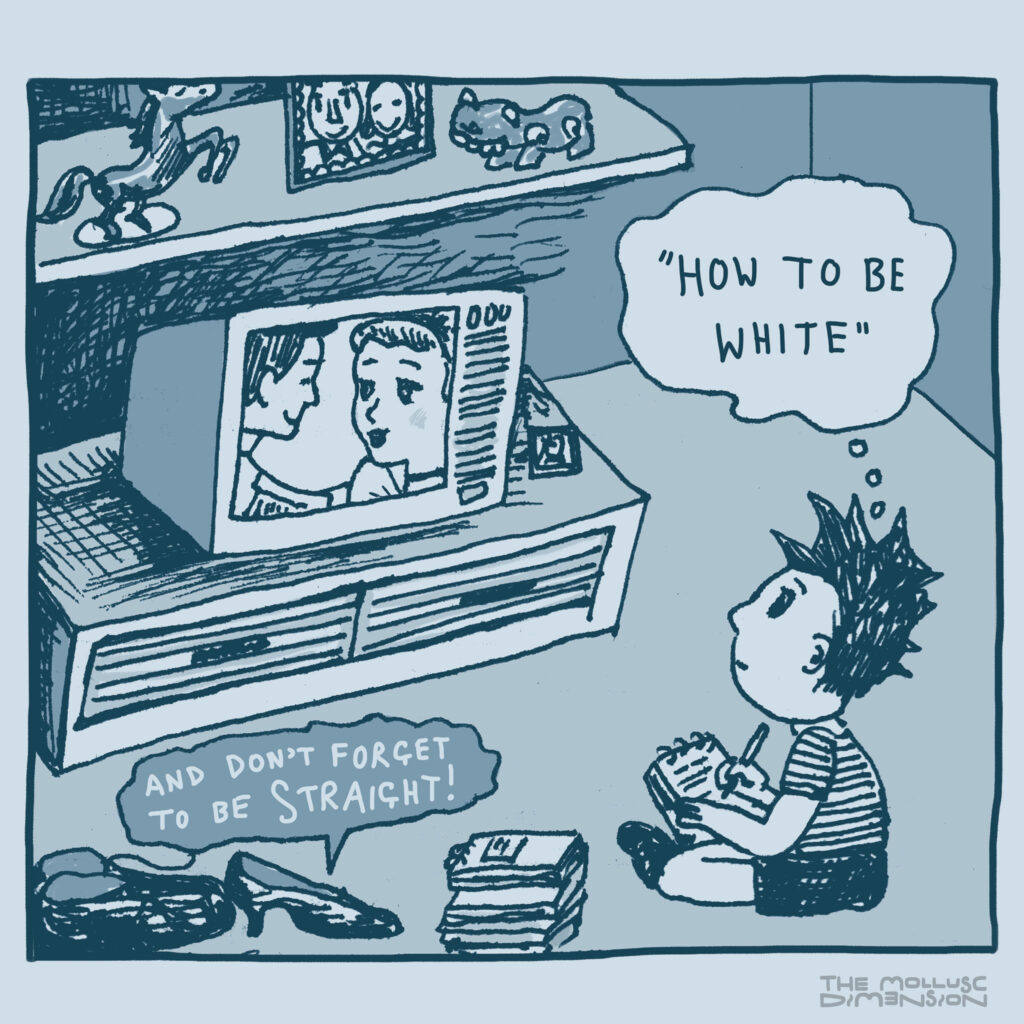
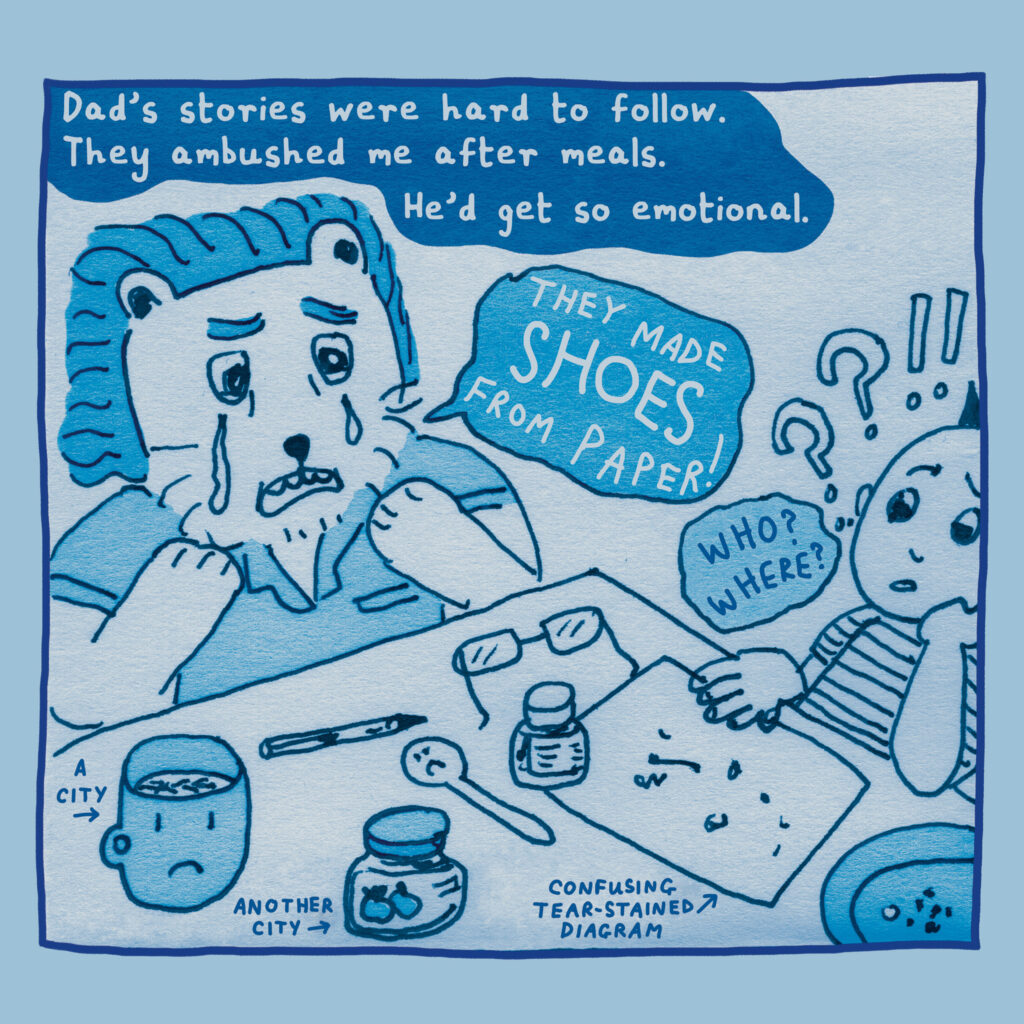
“It’s a colourful comic book about facing hidden challenges and daring to tell a story as a fish out of water—being creative in a world that often denies your existence,” explains The Mollusc Dimension.
The book, comprised of 37 interconnected short stories, delves into the artist’s life growing up in Essex, navigating mental health, grief, and discrimination, all while embracing his queer, trans, and neurodivergent identities. It’s a journey that has been anything but easy, marked by both personal struggles and societal barriers.
“As a young person, I was very confused about my identity because it was constantly erased and exoticized,” The Mollusc Dimension reveals. “Over the past eight years or so, I’ve been learning the language to describe my experiences and understanding how British colonialism and whiteness have impacted me.”
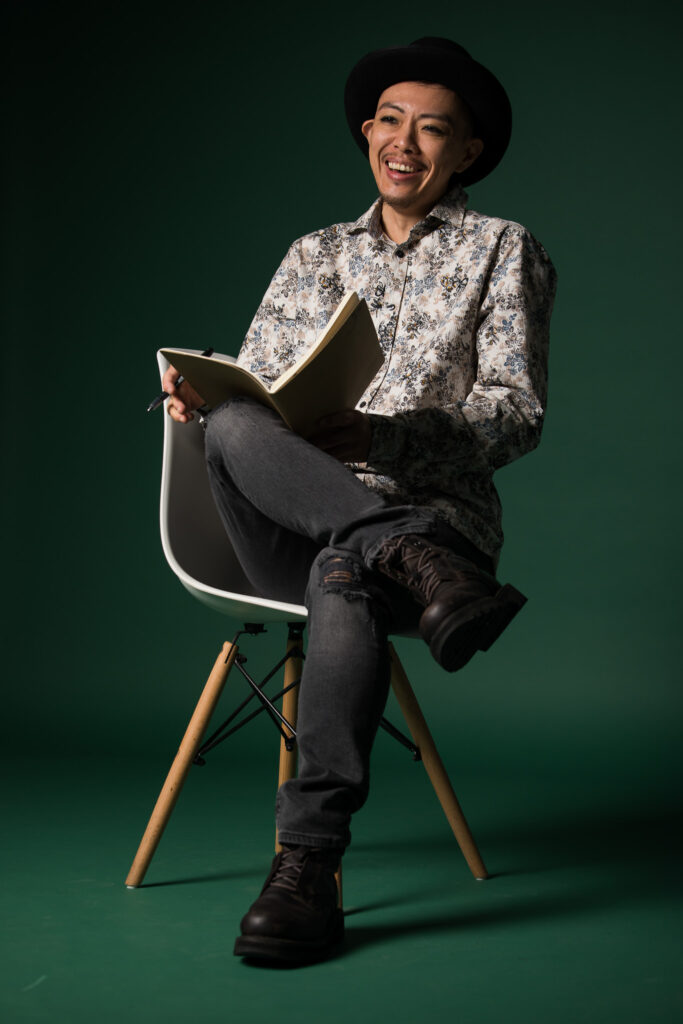
Growing up in a predominantly white area, under the shadow of Section 28 (a UK law that prohibited schools from discussing LGBTQIA+ topics), The Mollusc Dimension found solace in art, creating worlds within his imagination and expressing emotions that were often suppressed in his daily life.
“I complain a lot about how my parents didn’t let me pursue an art degree, but at least they nurtured my love for music,” he shares. “I spent a lot of time playing piano, creating worlds in my imagination, and escaping into them.”
This early exploration of creativity laid the foundation for his later work in comics. The Mollusc Dimension’s artistic journey has been one of continuous evolution, experimenting with different mediums and finding inspiration in unexpected places. From drawing on the backs of academic journals to creating zines, he honed his skills and developed a unique visual style that is both playful and poignant.
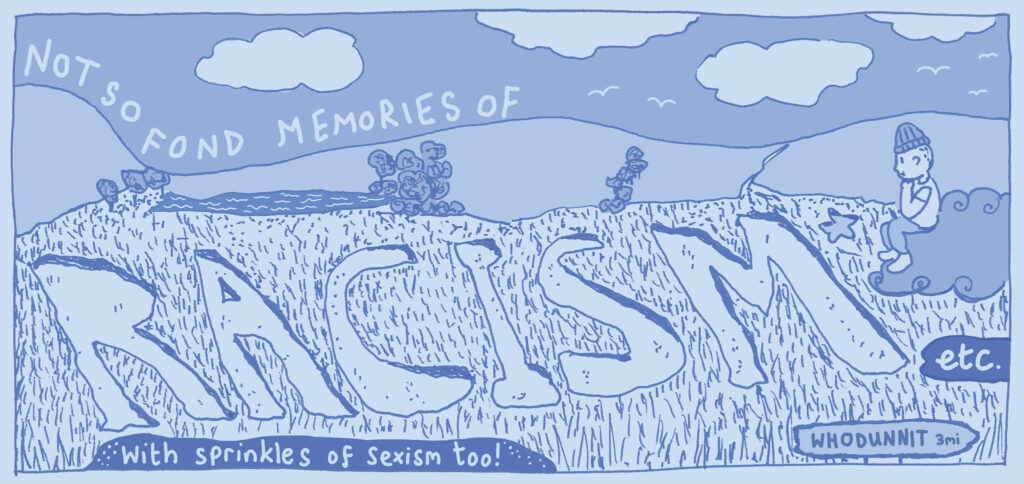
“I’ve made over 20 zines in the past, and this comic feels like an evolution of that,” he explains. “Zines are kind of like DIY magazines—often tied to punk culture or made by art students. My previous zines were more random, while this project has an overarching theme.”
The influences on his work are diverse, ranging from Marjane Satrapi’s “Persepolis” to Alison Bechdel’s “Fun Home” and Lise Myhre’s “Nemi.” These works, each exploring personal
stories and challenging societal norms, resonated with The Mollusc Dimension and inspired him to push the boundaries of comics as a medium for self-expression.
But the path to creating The Weird & Wonderful Surviveries of Squid Horse was not without its obstacles. The Mollusc Dimension faced challenges securing funding, battling self-doubt, and navigating the complexities of the publishing world. Yet, through perseverance and the support of a dedicated team, he brought his vision to life.
“There were so many challenges!” he exclaims. “Admin work, writing funding applications, and the technical aspects were particularly difficult. Thankfully, I received funding from Arts Council England, and my access worker helped me with two out of a total of four funding applications.”
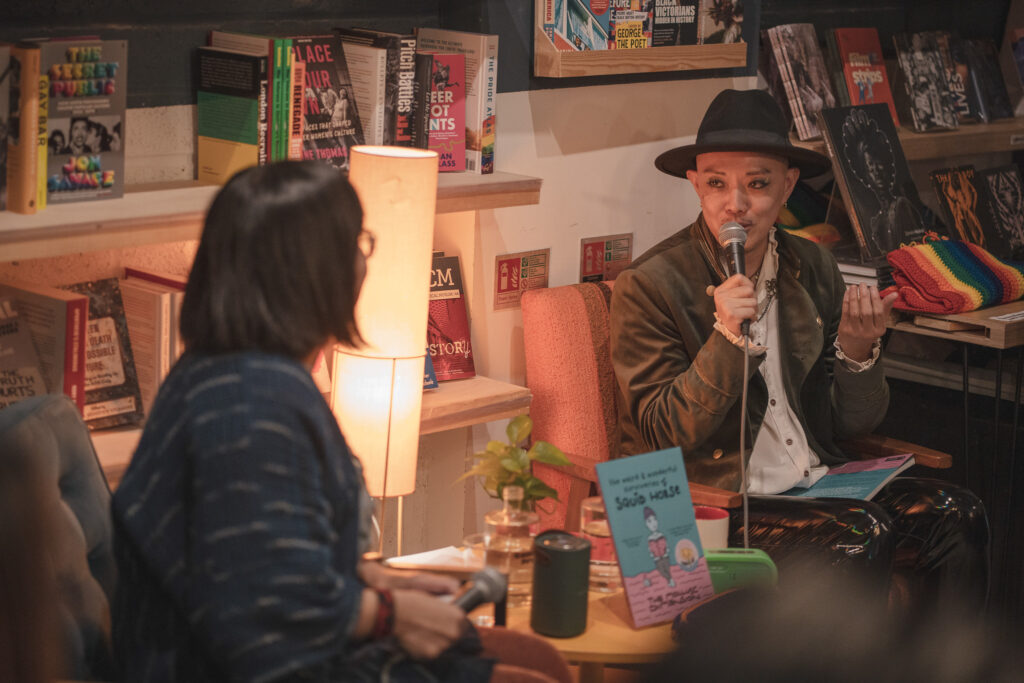
The book’s exploration of “cosy trauma”—a term coined by The Mollusc Dimension—is particularly striking. It captures the paradoxical experience of finding comfort and resilience amidst difficult experiences, a theme that resonates throughout the stories.
“The term ‘cosy trauma’ has a bit of sarcasm to it,” he explains. “After all, how can trauma be cosy? At the same time, I think it’s possible, especially for disabled people, to find comfort and survival amidst trauma. That juxtaposition is what I explore in my work.”
The Mollusc Dimension’s commitment to representation is also evident in his work. As a British-Chinese artist, he is passionate about sharing stories that often go untold, challenging stereotypes and celebrating the diversity of human experiences.
Reflecting on the concept of representation, The Mollusc Dimension shares, “Kai Cheng Thom’s critique of the limits of representation got me thinking. I realised that representation can be a tool which has the potential to further or hinder progress. I am deeply humbled to see certain ‘representers’ use their privilege for good and also make the space to listen to and encourage others.”
With The Weird & Wonderful Surviveries of Squid Horse, The Mollusc Dimension has created a work that is both deeply personal and universally relatable. It beautifully illustrates the power of art to heal, connect, and inspire, and it marks a significant step forward in the evolution of comics as a medium for diverse voices and perspectives.
As The Mollusc Dimension continues to explore new creative avenues, his journey serves as an inspiration to aspiring artists and storytellers everywhere. His story reminds us that even in the face of adversity, the human spirit can find ways to express itself, connect with others, and ultimately, create something truly extraordinary.

